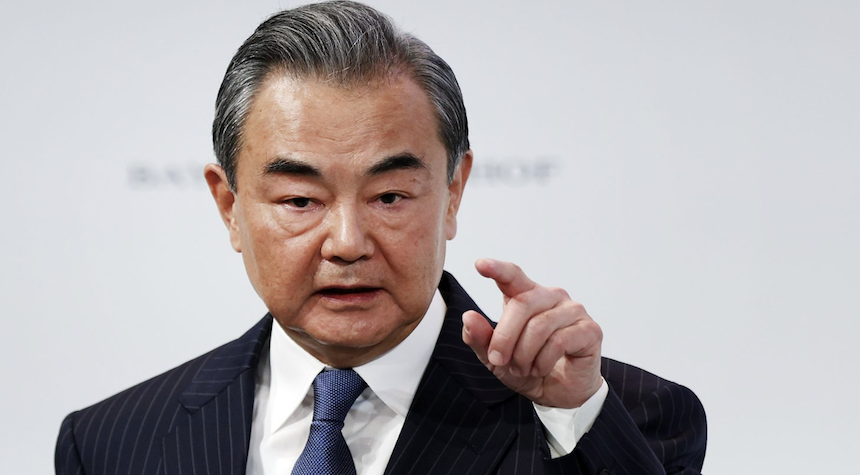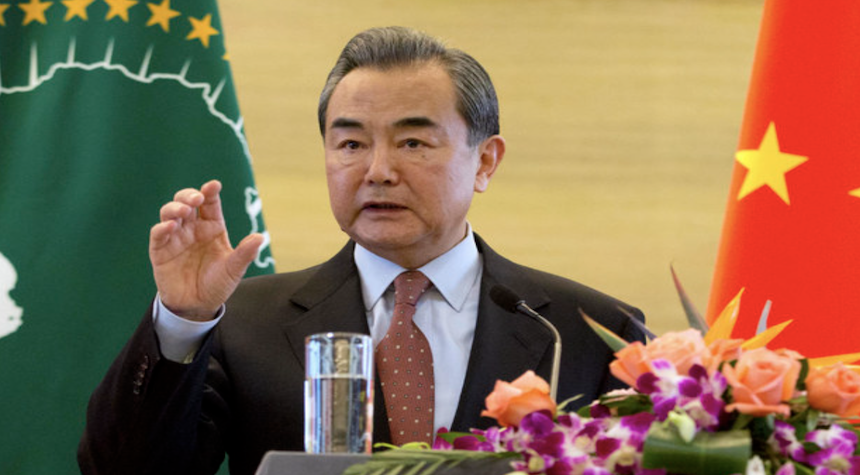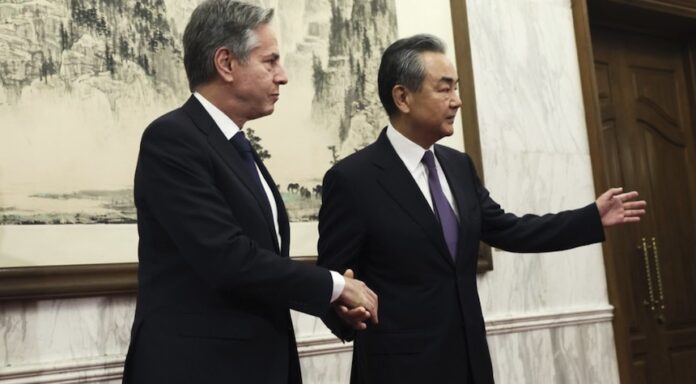Wang Yi, a top Chinese diplomat, caused some controversy with his racially charged remarks he made on Monday at a forum trilateral in Qingdao.
Wang, the current head of the Chinese Communist Party (CCP)’s foreign affairs committee was making controversial remarks towards Japan and Korea. He implied that Westerners cannot tell the difference between Chinese, Japanese, and Koreans.
Americans take all visitors from China, South Korea, and Japan as Asians. They cannot tell the differences and it’s the same in Europe.
No matter how yellow you dye your hair, or how sharp you make your nose, you’ll never turn into a European or American, you’ll never turn into a Westerner.

It is important to know one’s roots. If we could join forces and work together, we would be able to benefit our countries and our people. We can also revitalize East Asia, and enrich the entire world.
Wang, who had just concluded talks described by Secretary of State Antony Blinken in his remarks as “candid” and “constructive,” also made a less-than-subtle jab at the United States.
Some major countries outside of the region intentionally exaggerate ideologic differences, weave exclusive small circles and try to substitute cooperation with confrontation, and unity with division.
Only a united, self-sufficient region can achieve sustainable development and eliminate external interference.
It’s not surprising that Wang characterized the discussions in a more aggressive tone afterward. We reported that:
If you read the Chinese’s summary of their meeting, the U.S. is being scolded. It accuses us of the problems and says that we must choose between “cooperation or conflict.”
ICYMI #China readout on @SecBlinken meeting with top diplomat Wang Yi. Foreign Ministry translation: pic.twitter.com/qLITC8cizi
— Eunice Yoon (@onlyyoontv) June 19, 2023
What can be done to resolve the situation? The United States must “reflect on itself” and adhere to the “mutual coexistence, peaceful cooperation, and win-win collaboration put forward by President Xi Jinping.”
Wang also demanded that “the United States cease playing up the so-called ‘China Threat’.”
Although China has dismissed the controversy caused by Wang’s racially-charged remarks, one can only wonder what would happen if such characterizations were made by an American diplomat, for example, addressing certain European countries.
This blatant appeal to racism is especially hollow, given that the U.S. also has alliances with Japan and South Korea.

The comments received a lot of criticism.
Bonnie Glaser, Asia director of the George Marshall Fund, tweeted: “This message won’t land well with Japan or South Korea.” Does Wang Yi think that appearance is more important than national interests?
Jeff M. Smith of The Heritage Foundation, the U.S. think-tank, wrote: “The irony is that… Wang Yi told Japanese and Koreans, ‘You cannot become Americans,’ but Japanese and Koreans are becoming Americans every day.”
“They’re part of the fabric of America. What they can’t become is Chinese. Tone deaf. Again,” Smith wrote.
Smith’s comments brought to mind this Ronald Reagan quotation shared on Twitter by conservative commentator Avik Ro on Independence Day.
“A man wrote me and said: ‘You can go to live in Germany or Turkey or Japan, but you cannot become a German, a Turk, or a Japanese. But anyone, from any corner of the Earth, can come to live in America and become an American.’”—Ronald Reagan, 1989 https://t.co/BMBID4lsmu
— Avik Roy (@Avik) July 4, 2023
One man wrote to me saying: “You can live in Germany, Turkey, or Japan but you will never become a German or Turk or Japanese.” Anyone, from anywhere on the planet, can move to America and become an American .’–Ronald Reagan 1989
It’s unlikely that we have seen the end of China’s attempts to divide the U.S. from its Indo-Pacific partners, whether they appeal to racial stereotyping or economic and security interests.


